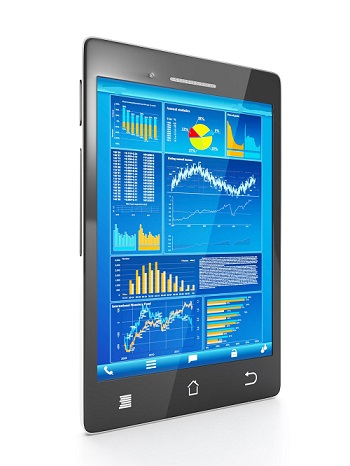The brand has decided not to use the over-the lens prism that was selected for Google Glass.
The latest brand to have their eye – so to speak – on the smart glasses market appears to be Toshiba, which has just finished revealing their prototype in Japan at the Ceatec trade show.
While these wearables may not be ready to bump Google Glass out of the running, price may be in their favor.
So far, it looks as though the smart glasses that could be offered by Toshiba would be a bit more affordable than Google Glass, which comes with a hefty price tag, at the moment. They are currently calling this wearable technology device Toshiba Glass. While they do include a built-in projector, they are unlike the current front runner in this category in that the image that they display is simply reflected off the inside of the lens in order to provide the wearer with a kind of augmented reality display experience.
This makes the idea similar to Google’s smart glasses, but at the same time, they are rather different.
 The Toshiba wearables feature a lightweight, small projector that is clipped onto one of the arms of the eyewear, close to the lens. It is that projector that reflects the image off the lens for the viewer to see in augmented reality. Google’s option also uses a projector, but its design is different in that it uses a prism over the lens in order to reflect the projected image to be seen by the wearer’s eye.
The Toshiba wearables feature a lightweight, small projector that is clipped onto one of the arms of the eyewear, close to the lens. It is that projector that reflects the image off the lens for the viewer to see in augmented reality. Google’s option also uses a projector, but its design is different in that it uses a prism over the lens in order to reflect the projected image to be seen by the wearer’s eye.
The product from Toshiba skips the use of the prism and has constructed the lens, itself, to be made up of a series of slim vertical prisms that are essentially invisible while looking directly through the lens as you would as you went about your daily routines. However, it allows an image to be projected upon them from an angle so that the wearer will be able to see it.
The specs from the company state that the device, as a whole, weighs about the same as Google Glass, at 42 grams. That said, they aren’t quite up to that level, particularly in that they are not wireless, as a battery in the projector would make the weight too high.
Study highlights the growing interest in mobile commerce coming from consumers
Interest in mobile payments is expected to grow in the coming years, powered by the introduction of new payment platforms and services, like Apple Pay. Gartner has released a new study that predicts how this growing interest will affect mobile commerce revenue in the U.S. New mobile payment services are becoming available on a seemingly daily basis, but high profile companies, such as Apple and Google, often attract more attention and generate more excitement in the mobile space, encouraging consumers to participate in digital commerce.
Mobile revenue may account for 50% of all digital commerce revenue in the US by 2017
Gartner’s study predicts that mobile commerce revenue in the U.S. will account for 50% of all digital commerce revenue by 2017. This growth is expected to be powered by the growing attention mobile commerce is receiving and the increased capabilities of smartphones and tablets, as well as the applications they use. Mobile apps are likely to contribute heavily to the growth of mobile revenue, as these apps serve as the primary way people engage in the digital space from their mobile devices. As the application experience improves, people are more likely to use them to purchase products and make payments online.
Study shows that people are becoming more comfortable with mobile shopping
 The study also predicts that more than $2 billion in online shopping will be done by the end of 2016. Consumers are becoming more comfortable with the idea of mobile commerce and are beginning to shop online more frequently from their mobile devices. Consumers are also becoming more comfortable with digital assistants, applications that are designed to help consumers fill out their information on retail sites when purchasing products.
The study also predicts that more than $2 billion in online shopping will be done by the end of 2016. Consumers are becoming more comfortable with the idea of mobile commerce and are beginning to shop online more frequently from their mobile devices. Consumers are also becoming more comfortable with digital assistants, applications that are designed to help consumers fill out their information on retail sites when purchasing products.
Geolocation is becoming a powerful tool for retailers
The study predicts that retailers will begin offering location-based deals to consumers more regularly in the future. These initiatives make use of geolocation technology to provide consumers with special offers from retailers that are close to them. This represents an effective way for retailers to engage with local consumers that are interested in mobile commerce.
 The Toshiba wearables feature a lightweight, small projector that is clipped onto one of the arms of the eyewear, close to the lens. It is that projector that reflects the image off the lens for the viewer to see in augmented reality. Google’s option also uses a projector, but its design is different in that it uses a prism over the lens in order to reflect the projected image to be seen by the wearer’s eye.
The Toshiba wearables feature a lightweight, small projector that is clipped onto one of the arms of the eyewear, close to the lens. It is that projector that reflects the image off the lens for the viewer to see in augmented reality. Google’s option also uses a projector, but its design is different in that it uses a prism over the lens in order to reflect the projected image to be seen by the wearer’s eye.
 The study also predicts that more than $2 billion in online shopping will be done by the end of 2016. Consumers are becoming more comfortable with the idea of mobile commerce and are beginning to shop online more frequently from their mobile devices. Consumers are also becoming more comfortable with digital assistants, applications that are designed to help consumers fill out their information on retail sites when purchasing products.
The study also predicts that more than $2 billion in online shopping will be done by the end of 2016. Consumers are becoming more comfortable with the idea of mobile commerce and are beginning to shop online more frequently from their mobile devices. Consumers are also becoming more comfortable with digital assistants, applications that are designed to help consumers fill out their information on retail sites when purchasing products.